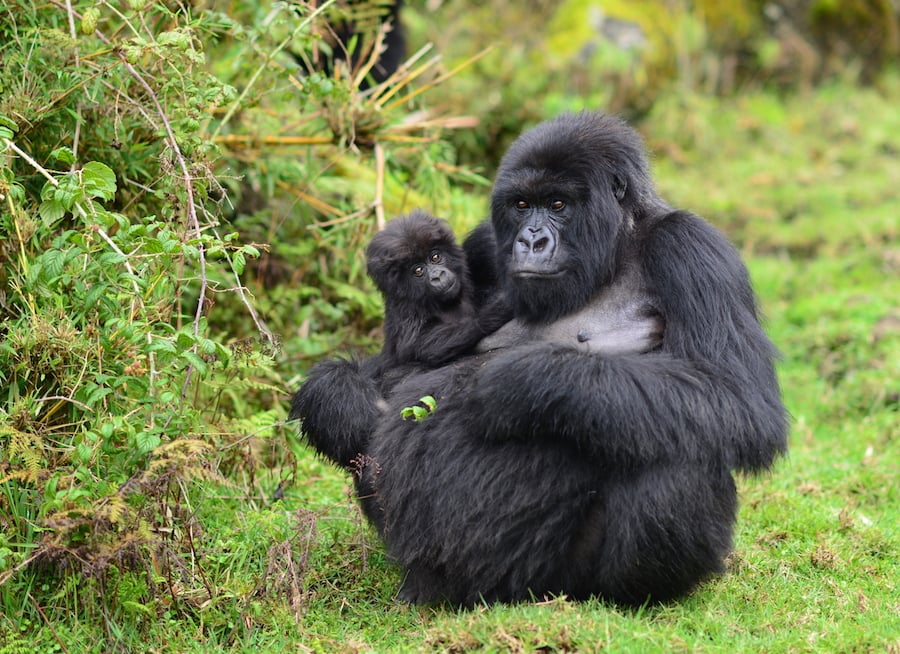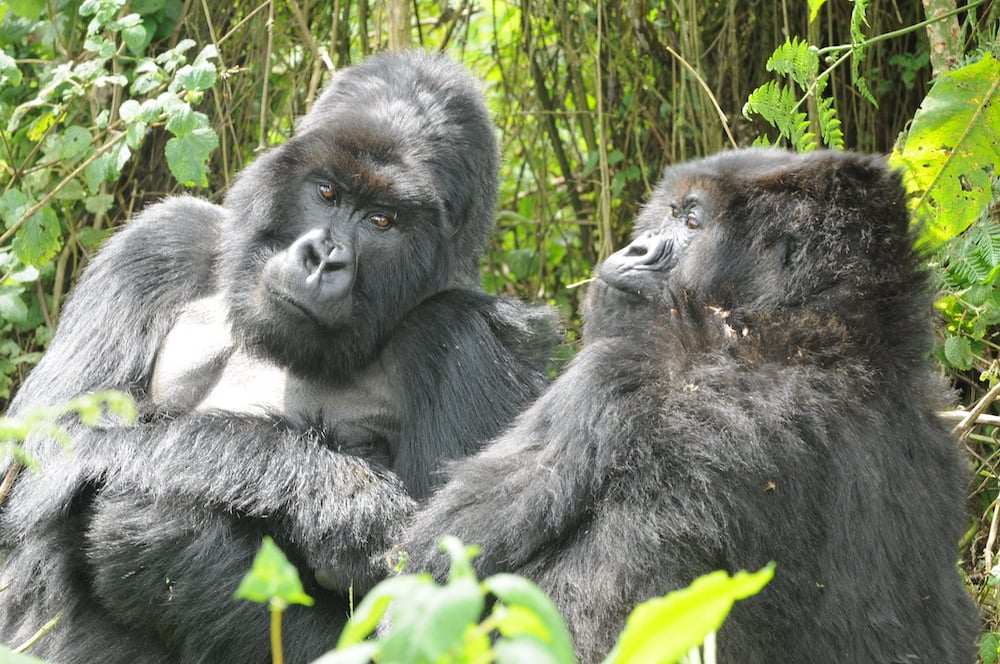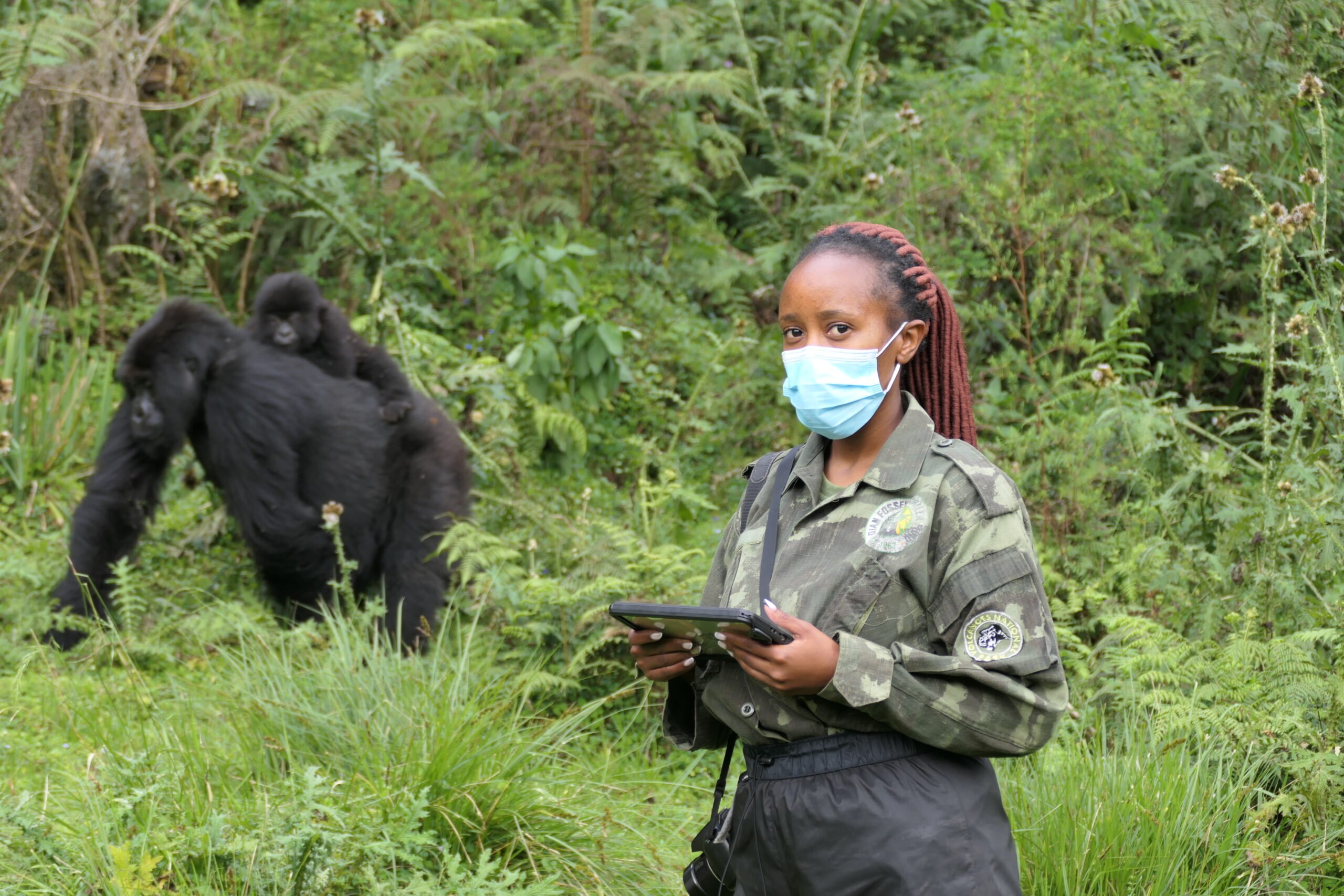Most species of primates have somewhat limited social relationships with their siblings. Often, this is because either males or females leave the groups where they were born once they reach maturity, leaving the other sex behind. That means there is a limited availability of siblings for forming potential bonds.
Even when there are siblings available, scientists have noted that for most primates, the bonds between siblings who are related through their mothers are stronger than those related through their fathers, possibly because there are multiple potential fathers living in the groups.
Here is where the Fossey Fund’s long-term database – started by Dian Fossey more than 55 years ago – on the mountain gorillas becomes useful. Mountain gorillas often live in groups with siblings, from both their maternal and paternal sides, and we have seen that this can continue for decades. Additionally, in many groups there is relatively little question about whether siblings share a father, either because there is only a single adult male in the group, or because the dominant male fathers most infants.
To understand how these unique social circumstances affect sibling relationships in mountain gorillas, scientists from the Fossey Fund, University of Michigan and Max Planck Institute for Evolutionary Anthropology analyzed 14 years of interaction patterns in the groups we monitor daily. We compared “prosocial” behaviors – nice behaviors like grooming – as well as aggressive behaviors, in non-sibling pairs and in three different types of siblings: maternal half-siblings, paternal half-siblings, and full siblings.
My family, my favorites
The research showed that mountain gorilla siblings with the same mother played, groomed, and stayed in close contact more often than pairs who only shared a father, or than pairs who weren’t siblings.
These patterns suggest that mountain gorillas favor maternal over paternal siblings, even though both are genetic relatives with whom they are very familiar. While it is tempting to conclude that they might not know who their paternal siblings are, intriguingly, opposite-sex siblings avoid being aggressive toward each other. This suggests that paternal siblings are at least detectable.
Why mountain gorillas might be able to recognize some kin, but nevertheless choose not to favor them as social partners, is a mystery that we hope to investigate in future studies. Indeed, the patterns we found challenge a number of prominent scientific ideas regarding how and when animals display favoritism towards their kin.
Clearly, there is still much to be learned about why gorillas behave the way they do, which is why the long-term data collection efforts of the Fossey Fund are so critical. Studies like this require the integration of multiple types of data – in this case, behavioral data with genetic data – and are only possible thanks to many years of work by the Fossey Fund’s field teams.
Submitted by Stacy Rosenbaum, Ph.D., assistant professor, University of Michigan, and former researcher at the Dian Fossey Gorilla Fund.
Did you know you can symbolically “adopt” two mountain gorilla siblings through the Fossey Fund? Click here to learn about this great way to help save gorillas.






